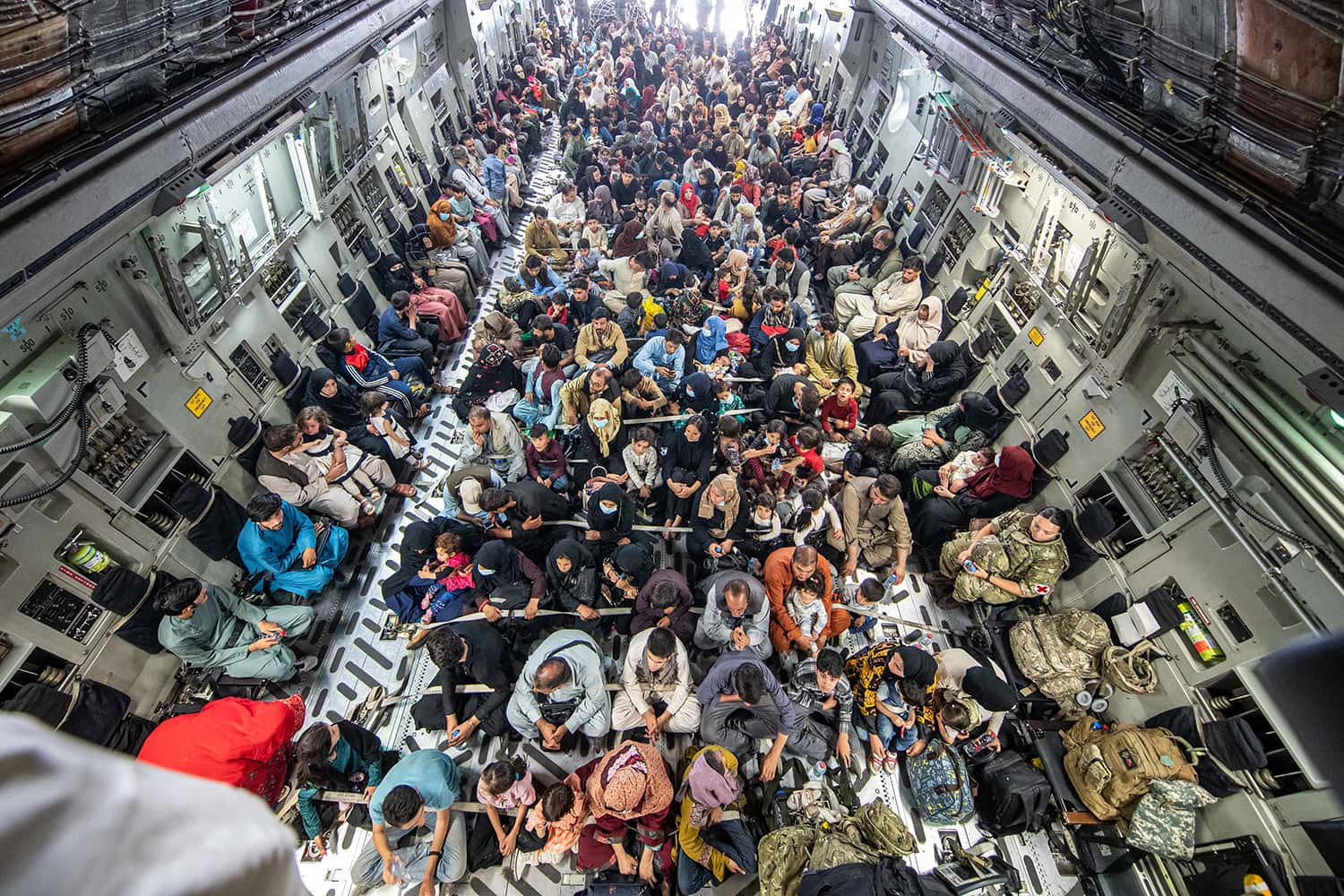Devin Lineham: Video of young boy playing Taps for Marines killed in Kabul goes viral

A young boy’s heartfelt tribute to slain US troops in Kabul, Afghanistan, has captured hearts and minds. As many as 13 US service members were killed on Thursday, August 26, when two explosions rocked an area outside Kabul's Hamid Karzai International airport. Reports say that close to 175 Afghans were killed, and more than 100 were wounded in the blasts.
Devin Linehan, 14, is a cadet senior airman with the Nevada Civil Air Patrol, which offers support to the US Air Force. His father, Sean Linehan, served in the US Marine Corps for ten and a half years. "He was pretty upset about the whole situation and didn't know what to do and [his mother] kind of guided him," Sean Linehan told Fox News, calling it a "spur of the moment" performance.
RELATED ARTICLES
Panicked US soldiers shot dead many civilians after airport blasts, claim new report
Who owns Baron Hotel in Kabul? Here's why it was targeted in the suicide bombing
He shared a video of Devin’s performance on Facebook, writing, “Devin playing Taps with the flag at half-mast in honor of the Marines and Corpsman killed in Afghanistan today. Truly hits deep.” Taps, described by the NPR as the “languid, melancholy sound of a bugle call” that is a fixture at military funerals, started out as a military signal for soldiers to turn out the lights and go to bed.
As per Taps historian and retired trumpeter for the United States Air Force Band Jari Villanueva, who played Taps at military funerals at Arlington Cemetery for 23 years, the tune was arranged in its present form by the Union Army Brigadier General Daniel Butterfield, an American Civil War general and Medal of Honor recipient. It was revised from a bugle call that was used during the Civil War, called ‘Extinguish Lights’. “It was the call prior to the Civil War that would tell soldiers to put out the lights and go to sleep,” said Villanueva in a 2011 interview.
"When we heard the news of the Marines in [Kabul] who got killed… it hit a little close to home," Sean Linehan said of his son. The Marine veteran said he felt "a flood of emotions," including "anger that it even happened in the first place" and "sadness" because he knows "the process" of how casualty notifications are given to those military families who have lost someone.

"You get close to those people," Linehan said, "even if you're not active duty, you still feel like they're your brother, and you'd do anything for them." Linehan's grandfather was a Marine who served in the Pacific theater of World War II, his brother served in the European theater, his uncle served in the Navy during the Vietnam War, and his cousin also served in the Navy.
The US Department of Defense released the names of the 13 service members killed in Thursday's attack. They were Marine Corps Lance Cpl. David L. Espinoza of Rio Bravo, Texas; Marine Corps Sgt. Nicole L. Gee of Sacramento, California; Marine Corps Staff Sgt. Darin T. Hoover of Salt Lake City, Utah; Army Staff Sgt. Ryan C. Knauss of Corryton, Tennessee; Marine Corps Cpl. Hunter Lopez of Indio, California; Marine Corps Lance Cpl. Rylee J. McCollum of Jackson, Wyoming; Marine Corps Lance Cpl. Dylan R. Merola of Rancho Cucamonga, California; Marine Corps Lance Cpl. Kareem M. Nikoui of Norco, California; Marine Corps Sgt. Johanny Rosariopichardo of Lawrence, Massachusetts; Marine Corps Cpl. Humberto A. Sanchez of Logansport, Indiana; Marine Corps Lance Cpl. Jared M. Schmitz of St. Charles, Missouri; Navy Hospitalman Maxton W. Soviak of Berlin Heights, Ohio; and Marine Corps Cpl. Daegan W. Page of Omaha, Nebraska.
In the aftermath of the blasts, President Joe Biden promised retribution. “We will hunt you down and make you pay. I will defend our interests and our people with every measure at my command,” Biden said in the White House speech, calling those military members who died “heroes who’ve been engaged in a dangerous, selfless mission to save the lives of others.”
Pentagon spokesman John Kirby said on Friday, August 27, that the US believed there were still “specific, credible” threats against the airport. Marine General Kenneth ‘Frank’ McKenzie, chief of US Central Command, said at a news briefing that the risk of an attack from the Islamic State persists alongside other threats.










